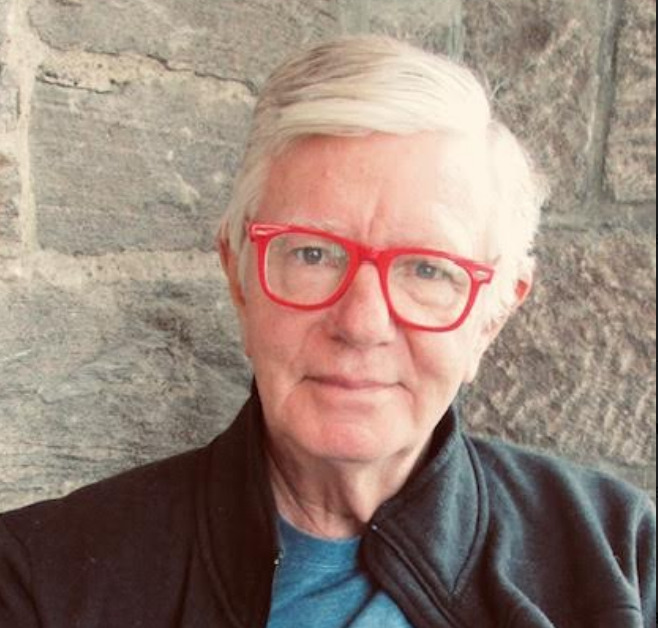By Margot Mabie
Arpeggio Music Festival, opening in Greenwich on June 3, is the brainchild of Bill Bonnell, who began playing the French horn at age 11 and, unlike most of the rest of us, kept playing.

He made his career in graphic design and branding, but much of his life has been devoted to music; he has played in amateur orchestras and bands for 60 years and dashes around the U.S. and Europe to attend music festivals, mostly opera festivals.
“I’ve always enjoyed going to music festivals, which I think is different than just going to a concert. The festival has some sort of a theme to it and a time period,” Bonnell said.
By design, a festival allows for immersion and concentration, giving the listening experience more breadth and depth. Bored during the pandemic and looking for something to do, Bonnell became an impresario to found Arpeggio Music Festival.
Describing what led him to the theme for his first festival, 100 years of American music, he mused, “I’ve had a feeling for many years that American composers are very underrepresented on concert stages. If you look at the programming of major symphony orchestras, they might have an Aaron Copland piece here or there, or a Bernstein piece, or maybe a George Gershwin. But a vast number of other American composers who were very popular in their day—for example, in the ‘30s and ‘40s and ‘50s—simply vanished off the concert stage. Occasionally pieces by contemporary composers are performed. In many cases an orchestra will play a world premiere, but then it will vanish from the repertoire because Beethoven, Brahms, or Chopin retakes the stage. I just wanted to give people an idea of a little bit of the depth of American composers and the variety of music that they’ve composed.”
At the beginning of the twentieth century, Americans looked to Europe for training—Aaron Copland, Irving Fine, and Philip Glass are but a few of the Americans who flocked to France to study with Nadia Boulanger. Even George Gershwin asked to study with her.
American orchestras needing a conductor also looked to Europe—it was only in 1957 that Leonard Bernstein became the first American to conduct a major American orchestra, the New York Philharmonic. Even American music didn’t sound very American until the 1930s, when Aaron Copland simplified his composing and found his distinctive style, which seemed to express the American landscape and spirit.
This year’s Arpeggio Music Festival lines up nine weekend concerts spread over three weekends in June that, taken all together, show the enormous range of styles and genres that American composers have mined over the past century.
The first weekend, June 3–5, is devoted to ensembles: Deming String Quartet—first violin, second violin, viola, and cello; Chamberlain Brass, a quintet–two trumpets, a French horn, trombone, and tuba; and Continuo Winds – flute, oboe, clarinet, bassoon, and French horn. All three groups play across a multitude of genres, and American composers have provided them with lots of pieces to play.
The second weekend focuses on pianists and vocalists. Will Healy plays music composed for solo piano. Philipp Petkov plays arrangements from film scores. Thomas Woodman, a baritone; his wife, Carol Woodman, a soprano; and Carolyn Paulus, a soprano; accompanied by pianist Andrew Gordon, perform pieces from American operas.
The third weekend of the festival starts with Bennie Wallace and Doug Davis discussing and demonstrating the art of improvisation. “Improvisation is a key aspect of jazz,” Bonnell points out, “but it has been a part of music from before Bach—Bach fantasias are basically improvisations that were written down.” Next, Will Healy talks about a composer’s life and performs some of his own pieces. The grand finale, with the 70-member Connecticut Symphonic Winds, is all about concert bands—“It’s a different kind of band than a band that does Sousa marches,” Bonnell said. “They perform serious band literature, music written for bands and good adaptations of orchestral scores.”
And then, when the band packs up and goes home, the impresario will start thinking about Arpeggio 2023.
All nine festival events will be held in the auditorium at the First Congregational Church, 108 Sound Beach Avenue, Old Greenwich. Tickets—$20 per event, free for kids seventeen and under—are available both at the door and at www.arpeggiofestival.org, where the complete program for each concert, as well as biographical information about the musicians, can also be found.